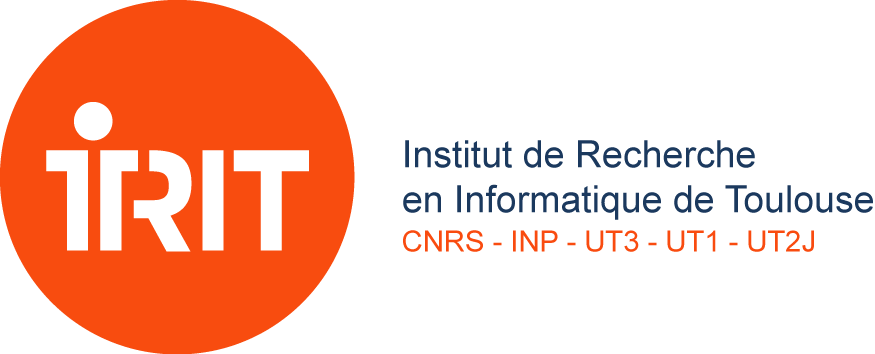IRIT, University of Toulouse
Toulouse, France
6th OSPM Summit
News
2024-06-10: A/V recordings of OSPM 2024 are available
2024-02-26: The OSPM VI Summit website is on-line
2024-02-20: The topic review/selection process is complete
2024-01-25: The OSPM VI call for contributions is out
Power Management and Scheduling in the Linux Kernel
The OSPM community sadly learnt of the premature and unexpected death of Daniel Bristot de Oliveira, one of the key founders of the OSPM initiative. He has been a fundamental contributor to the Linux kernel scheduler for more than a decade, with core functionality related to tracing, process scheduling and support for real-time workloads, among others, as well as an exceptional researcher contributing to the modeling and understanding of the intricacies of the most complex parts of the scheduler code with his PhD thesis and publications. Our deepest and heartfelt condolences to Daniel's family, girlfriend and closer friends.
OSPM Summit - VI edition
The VI edition of the Power Management and Scheduling in the Linux Kernel (OSPM) Summit aims at fostering discussions on power management and (real-time) scheduling techniques. The summit will be held at the Institut de Recherche en Informatique de Toulouse (IRIT) in Toulouse (France), on May 30-31, 2024.
Although scheduler techniques for reducing energy consumption while meeting performance and latency requirements are the prime interest of the summit, we welcome anybody interested in having discussions on the broader scope of real-time systems, real-time and non-real-time scheduling, tooling, debugging and tracing.
Schedule


Accepted talks
List of accepted talks for the 2024 edition:
- Valentin Schneider (Red Hat), Deferring CFS throttling to user entry
- Rafael J. Wysocki (Intel), Energy Models and Intel chips
- Rafael J. Wysocki (Intel), APIs allowing tasks to specify their performance needs
- Hongyan Xia (Arm), uclamp sum aggregation
- Christian Loehle (Arm), iowait boost going forward
- John Stultz (Google), Continuing to push proxy-exec
- Ricardo Neri (Intel), Challenges of capacity computation in Intel hybrid processors
- Andrea Righi (Canonical), Writing a Linux scheduler in Rust that runs in user-space
- Gautham R. Shenoy (AMD), Scheduler Sensitivity Study for Server Workloads
- Vincent Guittot (Linaro), How to set some latency hints to CFS tasks?
- Vincent Guittot (Linaro), Fixing, Improving and extending EAS
- Youssef Esmat (Google), Our experience with EEVDF
- Michele Castrovilli, Enrico Bini (University of Turin), Checking temporal constraints for any scheduling class
- Dietmar Eggemann (Arm), Running EAS and CAS on Intel hybrid processors
- Lukasz Luba (Arm), Standardized energy meter
- Lukasz Luba (Arm), PM QoS frequency limits and QoS for CPU latency
- Rafael J. Wysocki (Intel), CPU idle time management
- Ankur Arora, Thomas Gleixner (Oracle, Linutronix), PREEMPT_AUTO
Previous editions
Feel free to have a look at what happened in previous years:
- First edition (OSPM I - 2017): https://lwn.net/Articles/721573/
- Second edition (OSPM II - 2018): https://lwn.net/Articles/754923/
- Third edition (OSPM III - 2019): https://lwn.net/Articles/793281/
- Fourth edition (OSPM IV - 2020): https://lwn.net/Articles/820337/
- Fifth edition (OSPM V - 2023): https://lwn.net/Articles/934142/
Format
The summit is organized to cover two days of discussions and talks.
The list of topics of interest includes (but it is not limited to):
- Power management techniques
- Real-time and non real-time scheduling techniques
- Energy consumption and CPU capacity aware scheduling
- Real-Time Virtualization
- Mobile/Server power management real-world use cases (successes and failures)
- Power management and scheduling tooling (tracing, configuration, integration testing, etc.)
- Tracing
- Recap lightning talks (what has been achieved w.r.t. the previous edition?)
Important Dates
2024-02-19: deadline for submitting topics / presentations2024-02-26: notification of accepted topics / presentations
2024-05-30 -> 2024-05-31: the OSPM Summit
Attending
Attending the OSPM-summit is free of charge, but registration to the event is mandatory. The event can allow a maximum of 50 people (so, be sure to register early!). Registrations open on February 26th, 2024. To register, fill in the registration form.
While it is not strictly required to submit a topic/presentation (see below), registrations with a topic/presentation proposal will take precedence.
Venue and Hotels
The workshop will take place at IRIT [1], University of Toulouse [2], France.
The workshop venue is accessible [3] from downtown, where you can find most of the hotels/accommodations suggested below, by metro (line B) in 30 minutes [4]. You can reach IRIT by the metro B (approx one every 2 minutes in rush hours) or by bus (several lines, between 40 and 60 minutes depending on the line and the traffic). Several buses arrive at the metro station of the university. A map of the city center with the venue, transportation and food/drinks places is provided here [5].
It is recommended to pick a hotel close to a "Ligne B" subway station, anywhere between "Jean-Jaures" and "Les Carmes".
From the station, choose "Ramonville" direction and get off at the station "Université Paul Sabatier" [6]. The station is right inside the university. From there follow the map [7] to reach the IRIT building entrance.
Toulouse airport, "Aéroport Toulouse-Blagnac (TLS), Blagnac", has a lot of direct flights from European airports like Paris, Amsterdam, London, Munich among others. There is a shuttle "La Navette" [8], every 20 minutes, bringing you to downtown in more or less 30 minutes depending on the traffic.
A list of hotels on the metro line B (direct to the workshop location):
- http://www.hotel-oursblanc.com/
- https://www.athome-ah.com/
- https://www.discoverasr.com/fr/citadines/france/citadines-wilson-toulouse
- https://www.pullman-toulouse-centre-ramblas.fr
[1] https://www.irit.fr/
[2] https://www.univ-tlse3.fr/
[3] https://maps.app.goo.gl/rdcrKx6x8ntm4uij6
[4] https://maps.app.goo.gl/Y8UPRvHmbrjCSnvu5
[5] https://www.toulouse-visit.com/interactive-map
[6] https://metro-toulouse.com/ligne-B-metro-toulouse.php
[7] https://goo.gl/maps/ojiAeQoL5Ewgb2gp7
[8] https://www.toulouse.aeroport.fr/en/transports/public-transport?tabs4633=tab_4631
Organizers
- Georges Da Costa (Institut de Recherche en Informatique de Toulouse)
- Juri Lelli (Red Hat)
- Daniel Bristot de Oliveira (Red Hat)
- Lorenzo Pieralisi (Linaro)
- Daniel Lezcano (Linaro)
- Tommaso Cucinotta (Scuola Superiore Sant'Anna)


